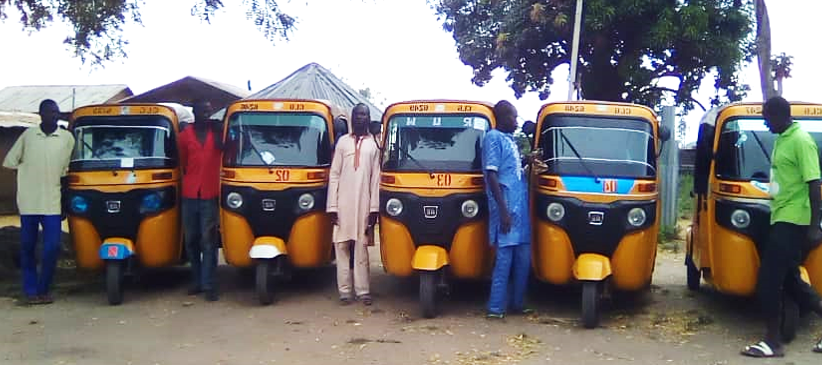Livelihoods and advocacy at Chanchaga Leprosy Community

What?
This project addressed the self-identified needs of the community at Chanchaga Leprosy Community in Niger State, Nigeria. The project helped the community to find their own voice, access funding, and organise around a sustainable livelihood project that has given new life to the community.
Why?
The community at Chanchaga is comprised of 300 people who are either affected by leprosy or have family members who are. Through consultation with the community, TLM Nigeria learnt that livelihood opportunities were limited. The exclusion of persons affected by leprosy in the areas surrounding Chanchaga was common and mainstream livelihoods opportunities were hard to access.
Many did not have access to nearby land, and due to the long dry season, those who were able to conduct farming work found that there were some months of the year when farming would not provide an income.
The young people within the community reported that they were keen to work on income-generating activities so that they could meet their family’s needs.
How?
TLM Nigeria started by providing advocacy training to members of IDEA Nigeria (an organisation of persons affected by leprosy) within the community. Because of this training, members of the Chanchaga community developed the confidence to advocate on their own behalf and were able to access funding through the World Bank’s Community and Social Development Project.
This grant was worth $28,000 and was put towards the renovation of dilapidated school blocks within the community and the purchasing of five tricycles ( motorised rickshaws known locally as ‘Keke NAPEP’ ). Five young people from the community were able to set up a small transport business through these tricycles
The income from the transport business was managed by a committee within the community. A separate bank account was opened to save the income generated from the business and the committee was responsible for maintaining the financial elements of the business, including the maintenance of the tricycles.
Where?
Chanchaga Leprosy Community, Niger State, Nigeria
Challenges
This livelihood project aimed to bring the whole community together and benefit everyone. Because of this approach, there were challenges in getting all community members to decide on the best way to use the funds.
Initially, there were members of the group who were advocating for the purchasing of a bus. The community overcame this challenge by speaking to the local transport authorities. The authorities told them that the funds would only purchase one bus and that this could be problematic if the bus had mechanical challenges or if the driver and conductor were unreliable. It was better to spread the funds across five smaller transport options.
Another challenge came when there was debate over who should receive the funds and start the livelihoods project. TLM had empowered the community to work collaboratively to solve their challenges and so the community elders decided that a fair solution would be to pick the names of the funding recipients out of a hat.
Successess
The business brought in plenty of money for the community. As well as contributing to the community fund, the tricycle business allowed the young men to take home good pay for themselves. The community was able to purchase two more tricycles, bringing the total number to seven.
As well as this, the committee uses the funds to support eight older persons affected by leprosy who live in the community but do not have anyone to support them and 38 farmers benefited from soft loans to purchase farming materials ahead of the planting season.
The project aimed at empowerment and the TLM Nigeria team were pleased to see that when the community borehole broke down, the community did not reach out to TLM Nigeria for support but instead used the profits from the business to fix it themselves. The TLM Nigeria believe the participatory, bottom-up approach from the very beginning of the project is a key part of this success.
The team have also seen that when self-help groups take ownership of entrepreneurship and empowerment, it promotes a unity of purpose among group members.